Faculty Roundtable on Influential People
Who is the most important person alive today? Why?
Faculty Roundtable on Influential People
Who is the most important person alive today? Why?
Michael Slattery – professor of geology, energy & environmental science
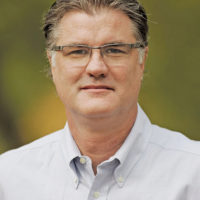
I don’t think there is one single person alive who can be thought of as being “the most important.” It is, of course, subjective. Notwithstanding, given my passion for wildlife, the most important person alive today for me is His Royal Highness Prince William, Duke of Cambridge. A strange choice? Perhaps. But he has done more to raise awareness about the illegal trade in wildlife products to date than anyone else. Rhinos and elephants, two of the most iconic megafauna on Earth, are being poached in record numbers, fueled by human greed and ignorance. In an unprecedented state television address, the prince recently persuaded China to take ‘significant’ steps to end the illegal wildlife trade and tackle transport routes for poachers. He has, in many ways, become the face of wildlife conservation.
Emily Farris – assistant professor of political science
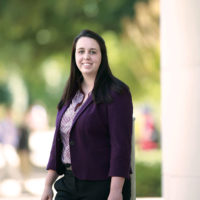
In the past year, protests erupted across the United States, translating grief and rage into demands for racial justice, under hashtags and slogans such as “Black Lives Matter” and “Say Her Name.” Engaged activists, primarily millennials of color, built new organizations and coalitions aimed at creating a diverse mass movement for broad societal transformation in our cities, campuses, and beyond. Modeled after the Student Nonviolent Coordinating Committee in the 1960s, Black Lives Matter organizers insist on a group-centered model of leadership, explaining that their movement is not leaderless, but is leader-full. The goals and objectives articulated by these important leaders breathe new life into the movement for social change, yet they are also quick to remind us that this “is not your grandmama’s civil rights movement.”
Darren J. N. Middleton – honors faculty fellow and professor of religion
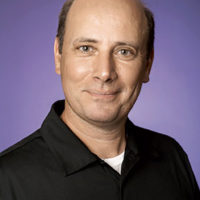
Jesus is no stranger to the high priests in country music’s roadhouse religion, which explains why many Christian scholars — myself included — find the genre such an instructive resource for thinking theologically. Raised in small-town Kentucky, Sturgill Simpson profoundly understands Christianity’s emphasis on sin and redemption, but he’s not your average God-fearing git-tar picker, since his lyrics reference string theory and Tibetan Buddhism. Meta-modern Sounds in Country Music is deep calling unto deep, sort of like Merle Haggard sharing corn-liquor with the Dalai Lama. I think Simpson is the most exciting thing to happen to music in the last decade, and his sonic gestures toward the sacred make me stop what I’m doing and ponder the holy in the everyday. Amen, brother.
Till Meyn – associate professor of theory and composition
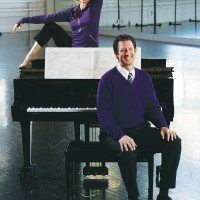
The most important person alive today is John Adams. “Wait,” you say—“Adams may have been important, but he’s been dead for a long time!” Aha; not THAT John Adams. I’m talking about the phenomenal American composer who has written operas, symphonic works, and chamber music. He’s taken the classical music world by storm, slowly but surely, for the past 40 years. Adams is important because the music he writes has touched millions of people’s lives in a way that only an artist of the highest caliber can do. From the operas, Nixon In China and Doctor Atomic to his string quartet Shaker Loops, to his short symphonic fanfare Short Ride In a Fast Machine, John Adams knows how to tap into the power of music to create meaningful change in the World. It only takes open ears and an open mind to allow his music to transform your life too.
Daxton “Chip” Stewart – associate dean of Bob Schieffer College of Communication
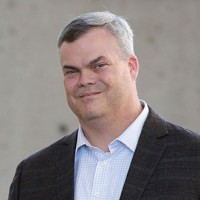
Few people remember where they were on Dec. 20, 1990 – I know I don’t. I was just a high school kid, probably playing some games on my old Apple IIc computer – but that was the day the Information Age took off. English computer scientist Tim Berners-Lee launched the World Wide Web that day at CERN, building his first website and developing the architecture that would make the Internet easily accessible to all. And as a gift to humanity, he gave it away to all of us, for free. Today, as director of the World Wide Web Consortium, Berners-Lee fights to keep the Web safe as a forum for free speech and to ensure that accessing it is protected as a basic human right.
Francyne Huckaby – associate professor in the College of Education
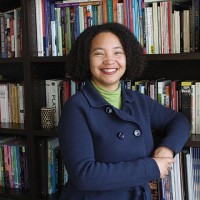
The most important person, alive today, is a common person, working to understand our world, listening to divergent worldviews, and seeking ways of coexisting. She is imperative at this moment, when our worldviews are divisive, life threatening, and deadly. He may live across town or be your neighbor. He may share the sidewalk or roadway with you. You might be or may become such a person willing to struggle for the rights of others, even those whose background and life experiences differ from your own. Such a person knows the world more fully; helps us see it with more clarity.
Michael Sherrod – William M. Dickey Entrepreneur in Residence and director, TCU/Coleman Entrepreneurship Fellows Program in the Neeley School of Business
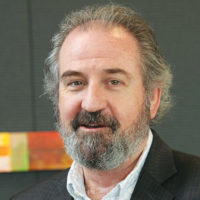
We live in a country where statistically we are safer than at any time in history, yet we are afraid. This is why my candidate for the most important person alive today is Malala Yousafzai. You know her as the young woman the Taliban shot in the head on a school bus. She survived and has won a Nobel Peace Prize for her work. Why is she so important? She is not afraid. Malala once said: “Extremists have shown what frightens them most: A girl with a book.” She understands what has always been true, that the best weapons against extremism are an educated and unafraid people.
David Jenkins – professor of social work
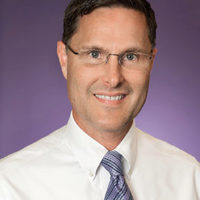
President Barack Obama is the most important person alive today. In addition to his routine responsibilities, he nominates any replacements to the Supreme Court. I believe the Supreme Court plays such a vital role in the balance of our branches of government. The current split of justices on many issues makes any replacement nomination of critical importance.

Your comments are welcome
Comments
Related Reading:
Campus News: Alma Matters
TCU’s Library Celebrates a Century
Uncover hidden gems of the academic hub, from vintage mechanics to modern masterpieces.
Campus News: Alma Matters
Infographic: TCU’s Shared Values
The Board of Trustees adopted four TCU values after considering input from more than 4,000 constituents.